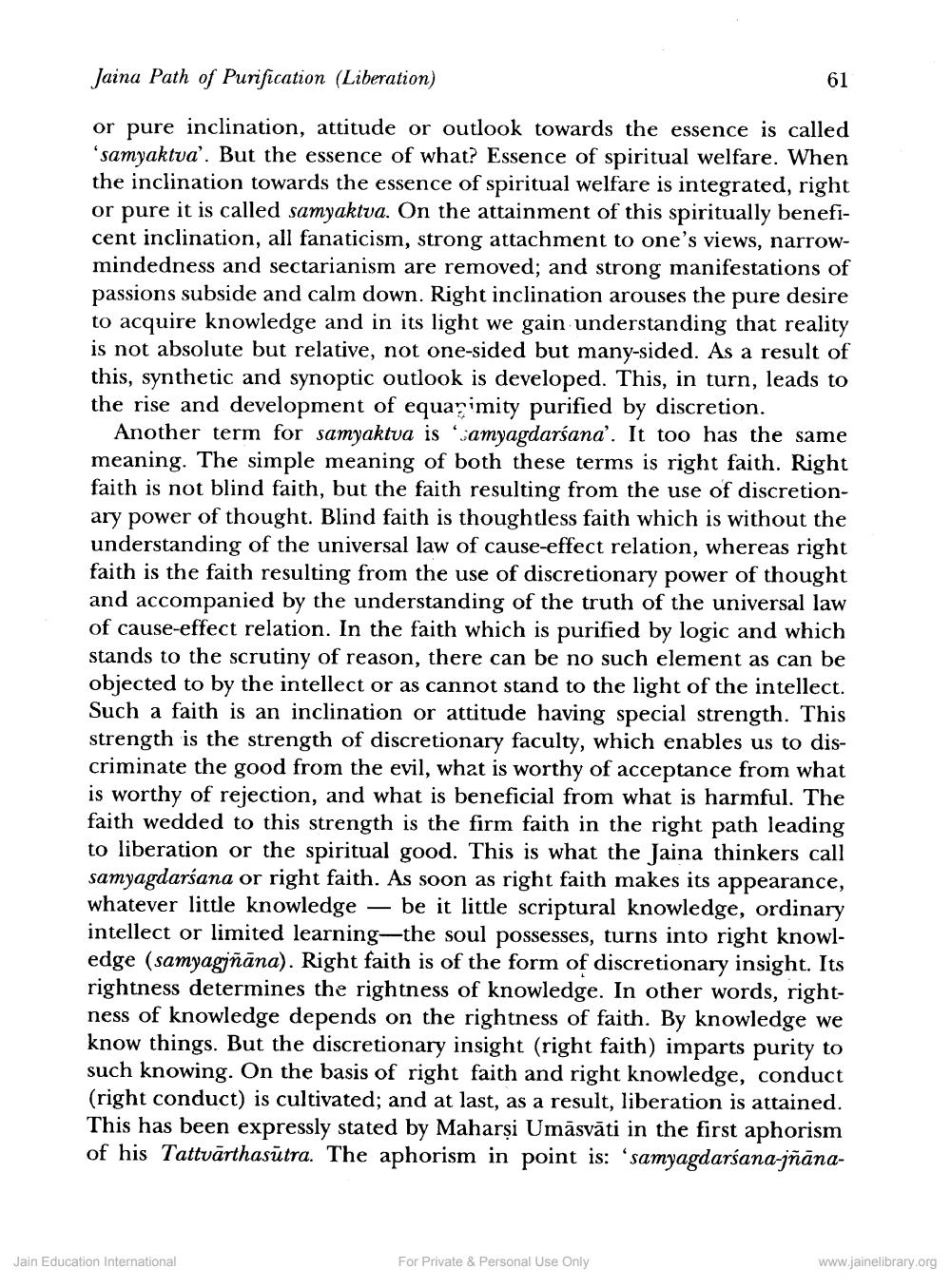________________
Jaina Path of Purification (Liberation)
61
or pure inclination, attitude or outlook towards the essence is called samyaktua'. But the essence of what? Essence of spiritual welfare. When the inclination towards the essence of spiritual welfare is integrated, right or pure it is called samyaktva. On the attainment of this spiritually beneficent inclination, all fanaticism, strong attachment to one's views, narrowmindedness and sectarianism are removed; and strong manifestations of passions subside and calm down. Right inclination arouses the pure desire to acquire knowledge and in its light we gain understanding that reality is not absolute but relative, not one-sided but many-sided. As a result of this, synthetic and synoptic outlook is developed. This, in turn, leads to the rise and development of equanimity purified by discretion.
Another term for samyaktva is samyagdarśana'. It too has the same meaning. The simple meaning of both these terms is right faith. Right faith is not blind faith, but the faith resulting from the use of discretionary power of thought. Blind faith is thoughtless faith which is without the understanding of the universal law of cause-effect relation, whereas right faith is the faith resulting from the use of discretionary power of thought and accompanied by the understanding of the truth of the universal law of cause-effect relation. In the faith which is purified by logic and which stands to the scrutiny of reason, there can be no such element as can be objected to by the intellect or as cannot stand to the light of the intellect. Such a faith is an inclination or attitude having special strength. This strength is the strength of discretionary faculty, which enables us to discriminate the good from the evil, what is worthy of acceptance from what is worthy of rejection, and what is beneficial from what is harmful. The faith wedded to this strength is the firm faith in the right path leading to liberation or the spiritual good. This is what the Jaina thinkers call samyagdarśana or right faith. As soon as right faith makes its appearance, whatever little knowledge — be it little scriptural knowledge, ordinary intellect or limited learning-the soul possesses, turns into right knowledge (samyagjñāna). Right faith is of the form of discretionary insight. Its rightness determines the rightness of knowledge. In other words, rightness of knowledge depends on the rightness of faith. By knowledge we know things. But the discretionary insight (right faith) imparts purity to such knowing. On the basis of right faith and right knowledge, conduct (right conduct) is cultivated; and at last, as a result, liberation is attained. This has been expressly stated by Maharsi Umāsvāti in the first aphorism of his Tattvārthasūtra. The aphorism in point is: 'samyagdarśana-jñāna
Jain Education International
For Private & Personal Use Only
www.jainelibrary.org




